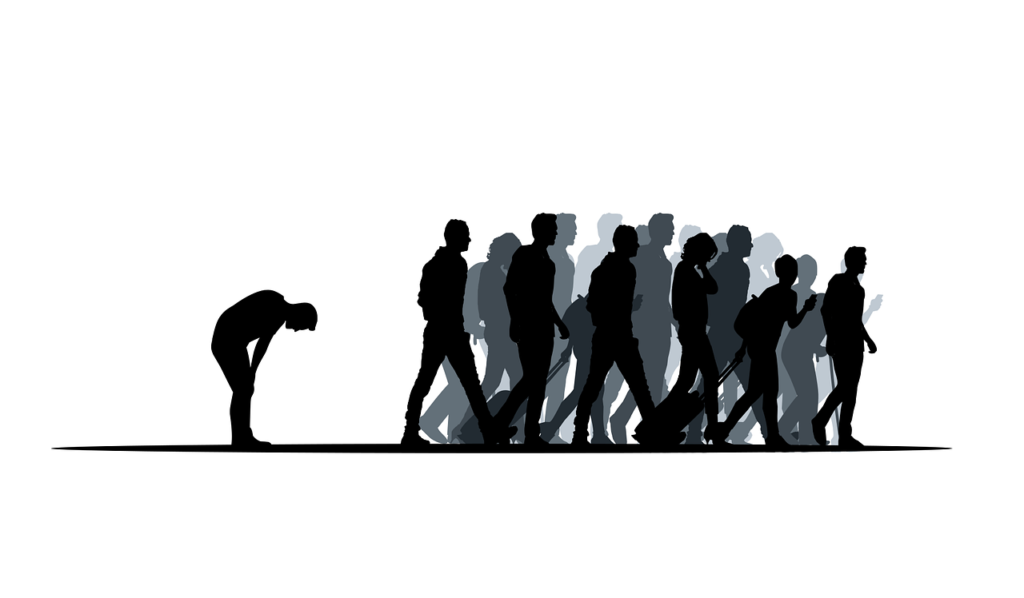More than Money

The Productivity Commission estimates that the cost of mental ill-health and suicide is between $43 and $51 billion each year and that there is an additional cost of $130 billion per annum associated with diminished health and reduced life expectancy. These costs will increase as Australia responds to the pandemic.
But the real cost of mental illness is far more than economic. It is felt in the stigma and discrimination experienced by the most vulnerable – being labelled, shunned, denied support, or not even being recognised. This denies a person’s human dignity and their right to live life to the full. It is a rejection of the gifts that they have to offer and their membership in the Body of Christ.
The stigma associated with mental ill-health can be as debilitating as the symptoms of the illness. Negative stereotyping of mental illness can have a huge impact socially. People are often avoided, excluded or experience dismissive treatment at community gatherings. Meanwhile, in the workplace people with mental ill-health can be judged incompetent and denied opportunities for advancement.
Economically, people with mental ill-health face greater levels of discrimination when seeking employment, renting accommodation and purchasing insurance. One in four of the poorest 20 per cent of Australians experience high or very high levels of psychological distress compared with only one in ten in the highest income brackets.
In the cultural sphere, we must question the way mental illness is understood and portrayed. Popular culture, films and advertising often ridicule people living with mental ill-health or cast them as being violent. Sensationalist media reports can perpetuate fear and prejudice. In fact, people with mental ill-health are no more violent than the general population and they are more likely to be the victims of violence and crime.
Stigma undermines self-esteem, the treatment of ill-health, and the process of recovery. Tragically, people on the receiving end of prejudice and discrimination can internalise negative stereotypes and ‘self-stigmatise’.
Reference: Social Justice Statement 2020-21: Life Life to the Full Mental Health in Australia Today. Australian Catholic Bishops Council. Page 7.
The Missing Middle

While Australia spends over $10 billion on mental health care each year, we still have disjointed and complex service systems that are difficult to navigate. They are unresponsive to the needs of people experiencing a mental health crisis and lack capacity to provide a person-centred service across the continuum of care – ranging from consultation with general practitioners through to acute specialist care.
There is a ‘missing middle’ – a severe lack of specialist community mental health services and after-hours care. Gaps between primary health care and acute care mean that people are falling through the system. They are the ones whose mental ill-health is too complex for general practitioners yet not severe enough to access limited specialist support.
People who have special needs also face barriers to accessing care and getting the correct diagnosis. For example, it is very difficult for people with disability, particularly intellectual disability, or those within the deaf community, to find appropriate services.
Access to care is limited where services in public health are stretched and care in the private system, particularly for those without insurance, is unaffordable. There has been a significant increase in people attending emergency departments, but these are often busy and ill-equipped to assist and turn people away or refer them to another hospital.
Patients are also at risk of being discharged prematurely from acute mental health units due to the limited number of beds.
The burden of this policy failure has been borne largely by informal carers – often family and mostly women. They have picked up many of the responsibilities once budgeted for and funded in the mental health institutions of last century. Over 970,000 Australians are caring for loved ones who experience mental ill-health. The cost of their care is valued at up to $15 billion each year.
Personal fulfilment, companionship, a sense of service and devotion are all part of care-giving in close relationships. However, the level of need and emotional and financial stress can also take their toll on these unsung heroes of Australia’s mental health system. Foregone employment opportunities, diminished social networks, and reduced income and savings are common experiences of people caring for someone with severe, complex and prolonged mental ill-health.
Carers are themselves experiencing high levels of psychological distress as a consequence. It has been estimated that carers experience clinical levels of depression at a rate over 75 per cent higher than the general population.
Reference: Social Justice Statement 2020-21: Life Life to the Full Mental Health in Australia Today. Australian Catholic Bishops Council. Page 10 – 11.

